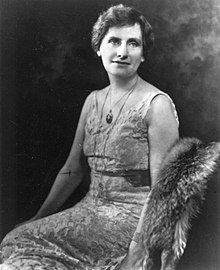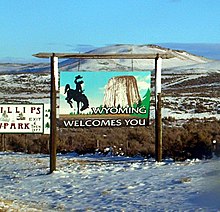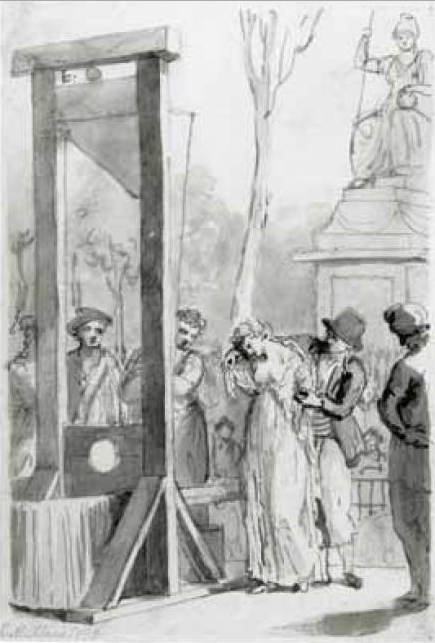 |
| Nellie Tayloe Ross 14th Governor of Wyoming In office |
Today's Highlight in History:
1924 – Nellie Tayloe Ross of Wyoming is elected the first female governor in the United States.
Nellie Tayloe Ross (November 29, 1876 – December 19, 1977) was an American politician, the 14th Governor of Wyoming from 1925 to 1927, and director of the United States Mint from 1933 to 1953. She was the first woman to be elected governor of a U.S. state, and remains the only woman to have served as governor of Wyoming. She was a staunch supporter of Prohibition during the 1920s.
After she graduated from Miltonville High School in 1892, her family moved to Omaha, Nebraska. During this time she taught private piano lessons, and also attended a teacher-training college for two years. She then taught kindergarten for four years. Nellie was sent on a trip to Europe in 1896 by two of her brothers.
While on a visit to her relatives in Dover, Tennessee, in 1900, she met William Bradford Ross, whom she married on September 11, 1902. Ross practiced law and planned to live in the American West. He moved to Cheyenne and established a law practice, bringing his wife to join him there. Ross became a leader in the Democratic Party in Wyoming. He ran for office several times unsuccessfully, losing to Republican candidates each time.
In 1922, William Ross was elected governor of Wyoming by appealing to progressive voters in both parties. However, after little more than a year and a half in office, he died on October 2, 1924, from complications from an appendectomy. The Democratic Party then nominated his widow, Nellie Ross, to run for governor in a special election the following month.
Nellie Tayloe Ross refused to campaign, but easily won the race on November 4, 1924. On January 5, 1925, she became the first female governor in the history of the United States. As governor she continued her late husband's policies, which called for tax cuts, government assistance for poor farmers, banking reform, and laws protecting children, women workers, and miners. She urged Wyoming to ratify a pending federal amendment prohibiting child labor. Like her husband, she advocated the strengthening of prohibition laws.
Wyoming is a state in the mountain region of the Western United States. It is the 10th most extensive, but the least populous and the second least densely populated of the 50 United States. The western two thirds of the state is covered mostly with the mountain ranges and range lands in the foothills of the Eastern Rocky Mountains, while the eastern third of the state is high elevation prairie known as the High Plains. Cheyenne is the capital and the most populous city in Wyoming, with a population estimate of 62,448 in 2013.
 |
| Wyoming state welcome sign on Interstate 80 in Uinta County (at the Utah border). |
Ross ran for re-election in 1926, but was narrowly defeated. Ross blamed her loss in part on her refusal to campaign for herself and her support for prohibition. Nevertheless, she remained active in the Democratic Party and campaigned for Al Smith in the 1928 presidential election though the two disagreed on prohibition. At the 1928 Democratic National Convention, she received 31 votes from 10 states for vice president on the first ballot. She also gave a speech seconding Smith's nomination. After the convention, she served as vice chairman of the Democratic National Committee and as director of the DNC Women's Division.
U.S. President Franklin D. Roosevelt appointed her as the first female director of the U.S. Mint on May 3, 1933, where she served five full terms until her retirement in 1953, when Republicans under Dwight D. Eisenhower and Richard M. Nixon regained the executive branch of government. She is famous for establishing the Franklin Half Dollar and starting the making of proof coins for public sale.
After her retirement, Ross contributed articles to various women's magazines and traveled extensively. She made her last trip to Wyoming in 1972 at the age of ninety-six. Five years later, she died in Washington, D.C., at the age of 101; at the time of her death, she was the oldest ex-governor in the United States. She is interred in the family plot in Lakeview Cemetery in Cheyenne.
World Events
1847 – Sir James Young Simpson, a British physician, discovers the anaesthetic properties of chloroform.
1852 – Camillo Benso, Count of Cavour becomes the prime minister of Piedmont-Sardinia, which soon expands to become Italy.
1861 – The University of Washington opens in Seattle as the Territorial University.
1864 – American Civil War: Battle of Johnsonville – Confederate troops bombard a Union supply base and destroy millions of dollars in material.
1868 – Camagüey, Cuba revolts against Spain during the Ten Years' War.
1890 – City and South London Railway: London's first deep-level tube railway opens between King William Street and Stockwell.
1921 – Japanese Prime Minister Hara Takashi is assassinated in Tokyo.
1921 – The Italian unknown soldier is buried in the Altare della Patria (Fatherland Altar) in Rome.
1922 – In Egypt, British archaeologist Howard Carter and his men find the entrance to Pharaoh Tutankhamun's tomb in the Valley of the Kings.
1924 – Nellie Tayloe Ross of Wyoming is elected the first female governor in the United States.
1939 – World War II: U.S. President Franklin D. Roosevelt orders the United States Customs Service to implement the Neutrality Act of 1939, allowing cash-and-carry purchases of weapons by belligerents.
1952 – The United States government establishes the National Security Agency, or NSA.
1960 – At the Kasakela Chimpanzee Community in Tanzania, Dr. Jane Goodall observes chimpanzees creating tools, the first-ever observation in non-human animals.
1970 – Genie, a 13-year-old feral child is found in Los Angeles having been locked in her bedroom for most of her life.
1970 – Salvador Allende takes office as President of Chile, the first Marxist to become president of a Latin American country through open elections.
1973 – The Netherlands experiences the first Car-Free Sunday caused by the 1973 oil crisis. Highways are deserted and are used only by cyclists and roller skaters.
1979 – Iran hostage crisis: a mob of Iranians, mostly students, overruns the US embassy in Tehran and takes 90 hostages (53 of whom are American).
1991 – Former Philippine First Lady Imelda Marcos was granted a presidential pardon by Corazon Aquino and allowed to return from exile.1993 – A China Airlines Boeing 747 overruns Runway 13 at Hong Kong's Kai Tak International Airport while landing during a typhoon, injuring 22 people.
1994 – San Francisco: First conference that focuses exclusively on the subject of the commercial potential of the World Wide Web.
1995 – Israeli prime minister Yitzhak Rabin is assassinated by an extremist Israeli.
2002 – Chinese authorities arrest cyber-dissident He Depu for signing a pro-democracy letter to the 16th Communist Party Congress.
2008 – Barack Obama becomes the first man of African-American descent to be elected President of the United States.





